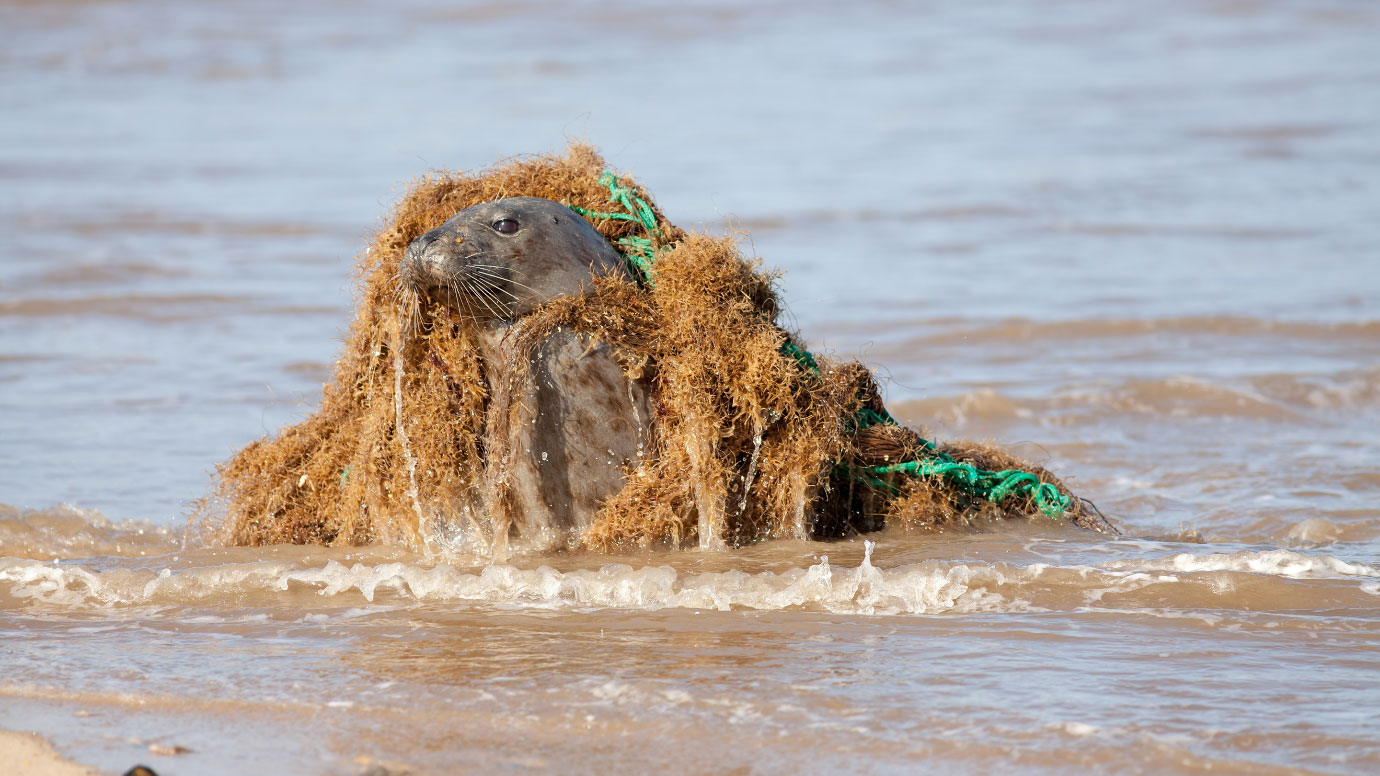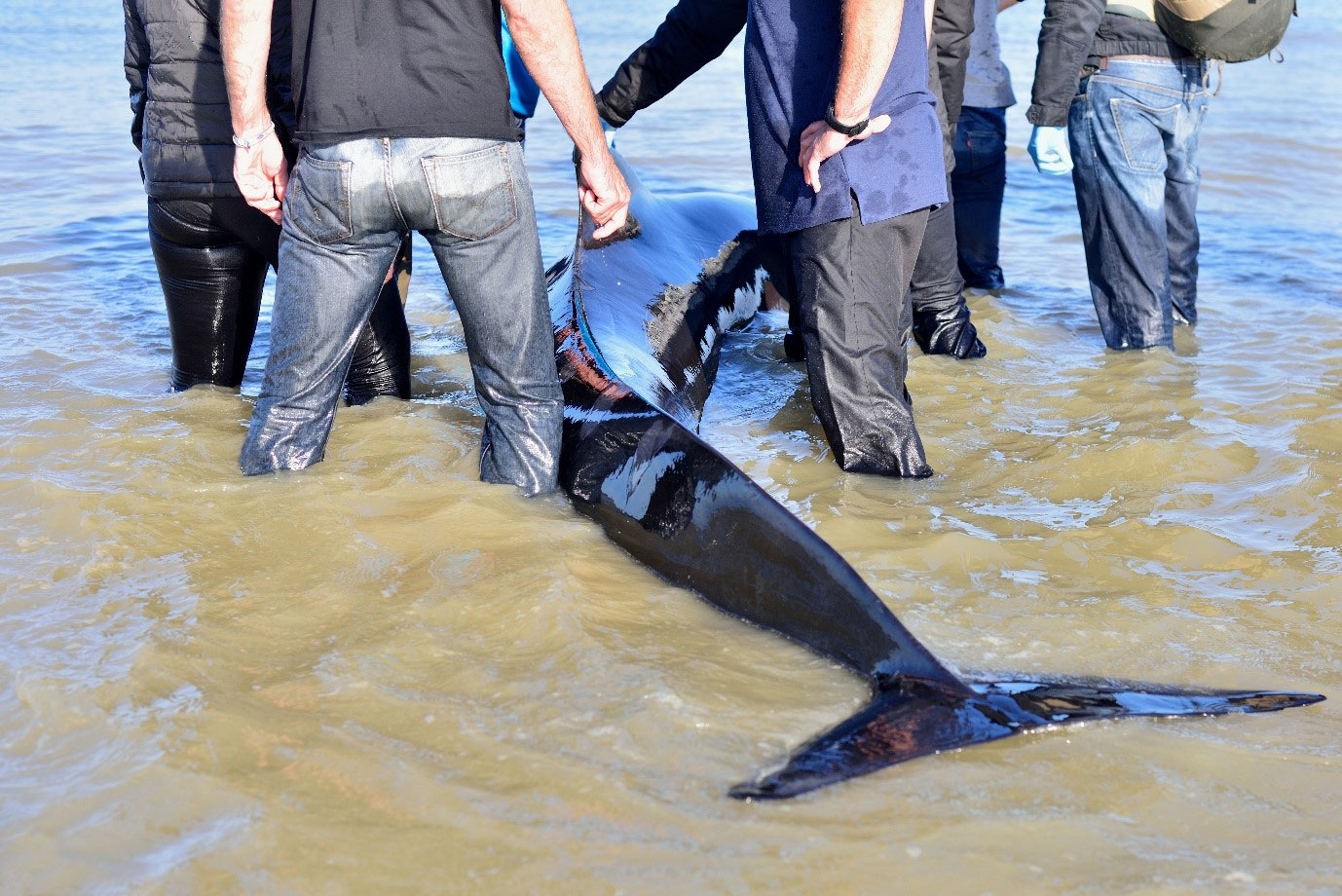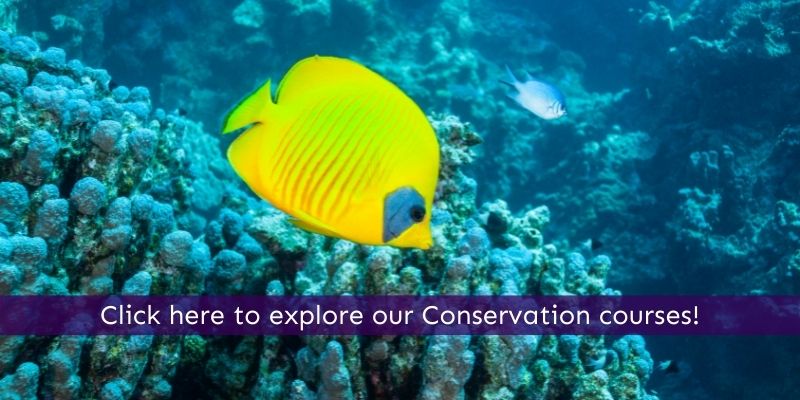What is marine conservation?
The health of all life on our planet depends on a thriving, healthy ocean. Marine conservation aims to protect and conserve our diverse and precious marine resources and ecosystems.
You might hear the terms marine biology, oceanography and oceanology mentioned in relation to marine conservation. The information gathered by these scientific methods helps to inform conservation efforts so that they are most effective. Marine law, economics and policy also influence the work that marine conservationists focus on.
Different tasks within marine conservation may include:
- Conducting surveys
- Monitoring habitats and populations
- Rehabilitation of sick or injured marine life
- Protection and rescue of animals from natural and human-made disasters
- Working to reduce activities that negatively impact marine life and habitats
What career paths are there in marine conservation?
If you’re interested in working within marine conservation, having knowledge of marine ecosystems and the challenges that they face is crucial. Having good problem-solving skills and the ability to collect, analyse, and interpret data is also helpful, along with curiosity and a passion to make a difference.
Let’s look at some job role examples:
Marine Biologists work mainly with sea plants and animals. Their work involves studying marine creatures and how they relate to the environment they live in. The knowledge gained from biologists helps us to measure a variety of things including the impact of:
- Global warming
- Pollution
- Over-fishing
- Damage through tourism.
Freshwater Biologists work on lakes and rivers. They can often be employed by environmental agencies and water companies, researching issues such as pollution and depleted fish stocks levels.
Marine biology involves highly scientific work and job roles usually require a first degree in the subject or a first degree in biology followed by a higher degree in marine/freshwater biology. Being competent in data analysis, chemistry, and maths, along with being observant and practical, will all be valuable in this role.
Marine Rescue Officer
Some charities are dedicated solely to the rescue and rehabilitation of stranded, sick, or injured marine wildlife. Their work is crucial during natural disasters and organisations often require extra volunteers at these times.
To rescue marine life appropriately you need specialist training. It is vital that both animals and rescuers are kept safe during the process. Many marine animals may be hostile and dangerous in these stressful situations. It’s important to be aware that they have the potential to injure either themselves or the rescuer in an attempt to escape.

Aquarist
This career choice is based in an aquarium environment and involves:
- Keeping aquatic systems in good condition
- Cleaning, feeding, and monitoring both animal health and water quality
- Setting up and maintaining new exhibits
- Giving tours around the aquarium
- Conducting research into various marine animals
- Advising on marine nutrition
- Assisting with the collection and transport of fish, amphibians, and reptiles
To work as an Aquarist, you must have a good understanding of water chemistry and fish species. Jobs usually require applicants to have a Bachelor of Science degree in Biology or a related field.
What training and qualifications will help me work in marine conservation?
Having practical experience of working with wildlife in a marine environment is a great start. However, it’s important to keep in mind that some positions will require a Degree in Biology, Zoology, or a related field. It is worth considering studying Marine Zoology, Marine Biology or Marine Conservation, depending on your specific interests.
The Marine Conservation Studies course is ideal for those who are considering this career path and want to explore the fundamentals of studying marine life and conservation. This online course covers the ocean as a habitat and looks in depth at various aspects of marine conservation. Over 6 units you will study:
- The Ocean Habitat
- Evolution and Marine life adaptation
- Fisheries and sustainable fishing
- Ocean pollution and the Impact of global climate change
- Impact of non-native species
- Government policy and legislation
If you’re particularly interested in marine rescue, then the Principles of Marine Animal Rescue Diploma will be ideal for you. Over 4 units learners will study:
- How to assess a stranding situation
- How to assist or manage a rescue
- The ocean as a habitat
- The impact of non-native species
We’re excited to present an optional 1-day practical Marine Mammal Medic training session as part of the course. This training involves 4 lectures and practical training in dealing with seal rescue, dolphin rescue and whale rescue.

How can I get experience and find volunteering opportunities?
If you haven’t spent time working in a marine environment, it is worth considering first working as a volunteer. You could start your search at the local aquarium where you may find volunteer opportunities, or even entry level paid work. This will give you basic experience in caring for aquatic wildlife and their environments.
If you’d like to search further afield to gain experience, then several marine rescue organisations run organised volunteer programmes and will be grateful for the time and enthusiasm you can offer them.
Many of our marine courses offer exciting practical placements such as:
Marine Conservation Practical - Egypt
This is a 2-week course based at a site, unaffected by tourism, on the coast of the Red Sea in Egypt. There are opportunities to study and monitor reefs, sea grass meadows and mangroves, amongst other things.
As part of the course learners will have the opportunity to experience:
- Diving
- Reef cleaning
- Marine research
- Assisting with community education
- Conducting ocean clean ups
Marine Science Practical Course - Menorca
This course offers the chance to join a marine expedition and learn from marine scientists working in the Balearic Basin region.
Learners will have the opportunity to:
- Learn about species identification and behaviour
- Learn about proven conservation techniques and tactics
Turtle Conservation Practical Placement - Perhentian Islands, Malaysia
This is a 2-week practical placement working in turtle conservation.
Learners will have the opportunity to:
- Collect scientific data to assist researchers and local government
- Help to keep the beach clean from debris and pollutants
- Join overnight beach patrols to ensure the safety of nesting turtles and their hatchlings
- Assist with educational outreach programmes aimed at residents and tourists
- Take underwater photos of sea turtles for photo ID purposes

















